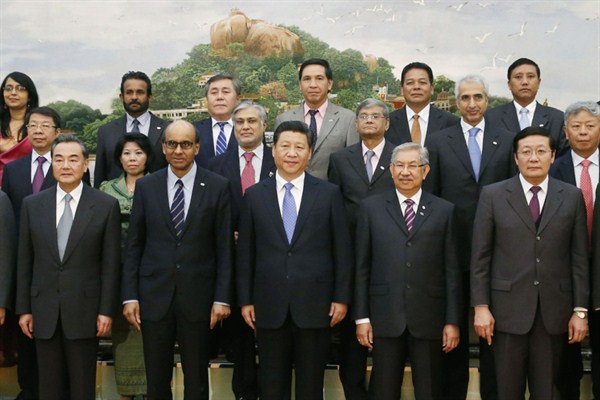The golden age of American economic primacy has ended. Two years ago, China surpassed the United States as the world’s top trading nation, and late last year it also surpassed the U.S. to become the world’s largest economy in purchasing-power terms. China is an economic titan, but until recently, its impressive rise had not been accompanied by a vision to reshape the global economic order. However, this is beginning to change.
Rather than accepting the status quo as given, Beijing is slowly working to revise foundational elements of the U.S.-led economic order. First, it has called into question the desirability of a global economy dependent on the U.S. dollar as its key currency. Instead, China has actively promoted the use of its own currency, the yuan, for international trade and investment purposes. While progress has been incremental, it has also been steady and shows no signs of abating.
Second, China is the key participant in a constellation of new multilateral international financial institutions (IFIs), most notably its recently introduced Asian Infrastructure Investment Bank (AIIB). Some of these new IFIs are regional, while others are broader in scope; some are designed for development lending, others for financial crisis management. Regardless of their membership or function, the U.S. is conspicuously absent from each institution, in sharp contrast to the Washington-based, American-dominated IFIs that have commanded the global economy since 1944. While these new institutions do not yet represent a direct challenge to the International Monetary Fund (IMF) and the World Bank, they may be heading in that direction.

